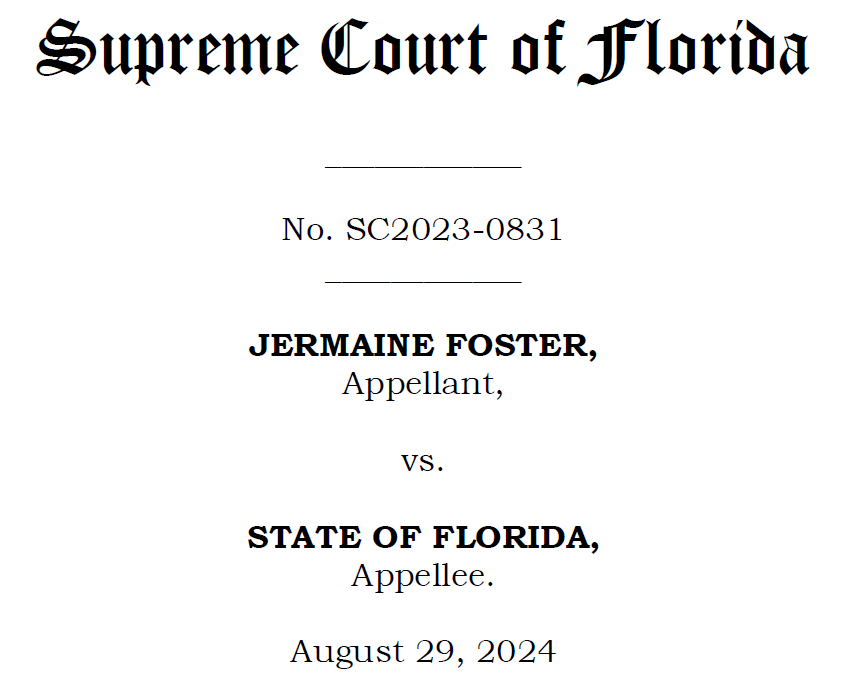Florida Supreme Court affirms denial of Jermaine Foster's intellectual disability claim
The opinion affirms the circuit court's summary denial of Foster's claim, on which the Court had previously granted an evidentiary hearing.
On Thursday, as part of the Court’s regular release of opinions, the Florida Supreme Court issued its opinion in Foster v. State. The opinion is authored by Justice Sasso and affirms the circuit court’s denial of Jermaine Foster’s request for postconviction relief.
Foster was convicted of two counts of first-degree murder in 1994, and the jury recommended two death sentences. He was sentenced to death, and his sentences became final in 1997.
Foster sought postconviction relief for intellectual disability based on the U.S. Supreme Court’s decision in Hall v. Florida, 572 U.S. 701 (2014). He was granted an evidentiary hearing on his claim in 2018. While the hearing was pending, the Florida Supreme Court decided Phillips v. State, 299 So. 3d 1013 (Fla. 2020), and overturned its prior decision in Walls that Hall is retroactive. After Phillips, the State sought to cancel the hearing. For various reasons, the State was ultimately successful in canceling the hearing, and the circuit court denied Foster’s claim. Foster appealed.
He raised three issues on appeal: the postconviction court erred when it (1) concluded that Phillips was correctly decided and is applicable in Foster’s case, (2) summarily denied Foster’s request for an evidentiary hearing, and (3) concluded that the State did not waive its argument against a retroactive application of Hall when it initially conceded that Phillips did not apply under existing precedent.
The Supreme Court disagreed on all grounds and affirmed the circuit court’s holding.
Justice Labarga dissented, referencing his dissent in Phillips and writing that Foster should have been granted an evidentiary hearing to avoid.
The full opinion can be found here.



